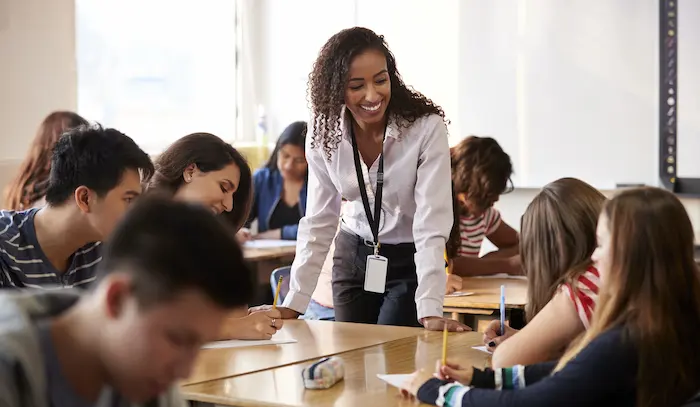On Friday of this week, as you may know, educators across the globe will celebrate International SEL Day. I appreciate that a specific day has been designated to focus on social and emotional learning (SEL), and I am hopeful that this focus perseveres beyond March 26th. My hope is grounded in my reflection of the past year. This global pandemic and long overdue call to action to address educational, social and racial inequities have impacted all of us. Educators, as well as our students and families, have experienced illness, grief and loss, economic insecurity, unintended gifts, realized gratitude and many impactful life lessons. One lesson we have all learned is that social and emotional connection is vital to our mental health. This is one of the reasons that I promote social and emotional learning as a way of being. We are educators, and as educators we are Ignitors of HOPE! Our students, their families, our colleagues and even our own families need for us to serve in this role more today, than ever before. Thus, as Ignitors of Hope, we must be focused on our own social and emotional growth so that we can practice and model SEL skills in order to integrate them into our school culture and teach them explicitly to our students. Let me share with you five ways to ignite hope by nourishing our own SEL.
- Remember, it is not about what we do, it is about how we be. I realize educators are reading this blog and my grammar is off, but intentionally so. Our way of being matters. Most of us do not need more to do, so let’s focus on how we be. Sometimes we can ignite hope in the lives of others by simply being connected. In order to do this however, we must take time to be still and to be present ourselves. If this is a challenge, start slow, chunk it and just BE!
- Speaking of being– be intentional. Specifically, intentionally practice gratitude. Take a moment every day to appreciate a person or an experience, and then share your gratitude with others. When we verbalize our gratitude, we provide an opportunity for others to feel grateful too.
- Embrace clarity. Think about how many times in the last week you have heard the term “social distancing” or used it yourself. Social distancing implies social isolation. None of us need more of that, nor do our students or our families. You will find empowerment in simply choosing to be clear about calling it what it is: physical distancing. Begin to use the term physical distancing, instead of social distancing. Not only will this choice remind us of our responsibility to model behaviors that keep ourselves and others safe, our word choice will also inadvertently emphasize the importance of emotional and social connection. For more clarity on the difference, watch this video for International SEL day on the topic.
- We’ve all heard the saying, “You cannot pour from an empty cup.” We know this, but often need the reminder that cups are refillable. So, fill your cup with real-time self-care strategies. Again, these come back to how we be, not more that we need to do. Notice your feelings. Celebrate your strengths. Ask for help. Breathe intentionally…even just one breath. Try it with me. Close your eyes, breathe slowly in through your nose, hold it for a second or two, and now breathe gradually out through your mouth. It takes no more than five seconds, but it can be centering, help you to refocus or to find peace in the moment.
- Finally, we can focus on what is within our control. I often remember the wisdom from one of our family’s heroes, John Wooden. He said, “Don’t let what you cannot do, interfere with what you can.” During this pandemic and as we head back into school buildings (regardless of the uncertainty we may feel, the frustration of not knowing what tomorrow will bring or how things might change without notice) there are certain things over which we have no control. We can, however, let go of those things and focus on choices within our power. We can choose to focus on joy, to come from a place of love and respect in our response to the words or behaviors of others, and to practice optimistic attitudes followed by reinforcing actions. We can also choose to believe – in ourselves and others and to be merciful when things don’t go exactly as planned. When we manage our responses to our emotions by focusing on the things within our realm of influence, we leverage our role as Ignitors of Hope!

Michelle Trujillo is passionate about igniting hope in schools! Through her writing, speaking and professional development workshops, she inspires readers, educators, students and their parents to recognize the power of love, connection, and social and emotional learning in the pursuit of academic achievement and productive citizenship.
Michelle’s message of “starting with the heart” is founded on brain-based research, “in the trenches” experience and practical strategies. Her sincerity, enthusiasm and expertise are contagious and substantial. Named Nevada’s 2016 Innovative Educator of the Year, Michelle has appeared on television (including Oprah) and radio across the nation as a guest expert. Although Michelle has dedicated her vocation to education, she vows that family always comes first! Her husband of thirty years and their two adult children fill her heart with joy and inspire her daily! Michelle’s most recent book, Start With the Heart: Igniting Hope in Schools through Social and Emotional Learning was released by Corwin in April 2019. This text is used in a Teaching Channel course 5203: Social and Emotional Learning Starts with You. In this course, you will explore how social and emotional learning can instill hope in the school community; how it impacts student academics; and how adult SEL is as important as student SEL.







